- Joined
- Oct 9, 2007
- Messages
- 47,677 (7.43/day)
- Location
- Dublin, Ireland
| System Name | RBMK-1000 |
|---|---|
| Processor | AMD Ryzen 7 5700G |
| Motherboard | Gigabyte B550 AORUS Elite V2 |
| Cooling | DeepCool Gammax L240 V2 |
| Memory | 2x 16GB DDR4-3200 |
| Video Card(s) | Galax RTX 4070 Ti EX |
| Storage | Samsung 990 1TB |
| Display(s) | BenQ 1440p 60 Hz 27-inch |
| Case | Corsair Carbide 100R |
| Audio Device(s) | ASUS SupremeFX S1220A |
| Power Supply | Cooler Master MWE Gold 650W |
| Mouse | ASUS ROG Strix Impact |
| Keyboard | Gamdias Hermes E2 |
| Software | Windows 11 Pro |
Ahead of its launch, a Core i5-7600K processor (not ES) made its way to Chinese tech publication PCOnline, who wasted no time in putting it through their test-bench, taking advantage of the next-gen CPU support BIOS updates put out by several socket LGA1151 motherboard manufacturers. Based on the 14 nm "Kaby Lake" silicon, the i5-7600K succeeds the current i5-6600K, and could be positioned around the $250 price-point in Intel's product-stack. The quad-core chip features clock speeds of 3.80 GHz, with 4.20 GHz max Turbo Boost frequency, and 6 MB of L3 cache. Like all its predecessors, it lacks HyperThreading.
In its review of the Core i5-7600K, PCOnline found that the chip is about 9-10% faster than the i5-6600K, but that's mostly only due to its higher clock speeds out of the box (3.80/4.20 GHz vs. 3.50/3.90 GHz of the i5-6600K). Clock-for-clock, the i5-7600K is just about 1% faster, indicating that the "Kaby Lake" architecture offers only negligible IPC (instructions per clock) performance gains over the "Skylake" architecture. The power-draw of the CPU appears to be about the same as the i5-6600K, so there appear to be certain fab process-level improvements, given the higher clock speeds the chip is having to sustain, without a proportionate increase in power-draw. Most of the innovation appears to be centered on the integrated graphics, which is slightly faster, and has certain new features. Find more performance figures in the review link to PCOnline below.
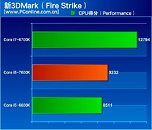
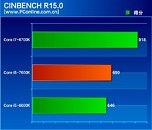
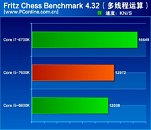
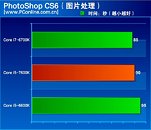
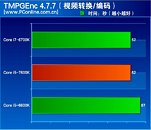
View at TechPowerUp Main Site
In its review of the Core i5-7600K, PCOnline found that the chip is about 9-10% faster than the i5-6600K, but that's mostly only due to its higher clock speeds out of the box (3.80/4.20 GHz vs. 3.50/3.90 GHz of the i5-6600K). Clock-for-clock, the i5-7600K is just about 1% faster, indicating that the "Kaby Lake" architecture offers only negligible IPC (instructions per clock) performance gains over the "Skylake" architecture. The power-draw of the CPU appears to be about the same as the i5-6600K, so there appear to be certain fab process-level improvements, given the higher clock speeds the chip is having to sustain, without a proportionate increase in power-draw. Most of the innovation appears to be centered on the integrated graphics, which is slightly faster, and has certain new features. Find more performance figures in the review link to PCOnline below.





View at TechPowerUp Main Site








